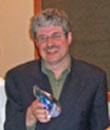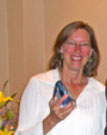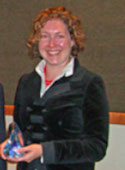
CONTACT




MEDIA RELEASE
FOR IMMEDIATE RELEASE SEPTEMBER 12, 2007
CAFA DISTINGUISHED ACADEMIC AWARDS, 2007
EDMONTON – The Confederation of Alberta Faculty Associations (CAFA), the provincial organization representing academic staff associations at the University of Alberta, the University of Lethbridge, and Athabasca University, is pleased to announce that Professor Alvin Finkel, of Athabasca University, and Professor Lisa Doolittle, of the University of Lethbridge, have been chosen to receive the CAFA Distinguished Academic Awards for 2007. Professor Emily Luce, of the University of Lethbridge, is the recipient of this year’s CAFA Distinguished Academic Early Career Award.
The Awards will be presented at a dinner in Edmonton, on Friday, September 14, 2007.
The CAFA Distinguished Academic Awards recognize academic staff members who through their research and/or other scholarly, creative or professional activities have made an outstanding contribution to the wider community beyond the university.
The CAFA Distinguished Academic Early Career Award recognizes academic staff members, at an early stage of their careers, who through their research and/or other scholarly, creative or professional activity have made an outstanding contribution to the wider community beyond the university.
The annual Awards are specifically designed to honour excellence and raise awareness of the many ways in which the work of university academic staff serves the wider community.
“The CAFA Distinguished Academic Awards are being offered for the first time this year,” said Professor Peter McCormick, President of CAFA. “I’m delighted that we are able to recognize in this way the extraordinary contributions university academic staff members make, through their academic work, to the wider community beyond the academy. The work of Alvin Finkel, Lisa Doolittle, and Emily Luce, our Award recipients for 2007, is exemplary in this respect.”
MEDIA ENQUIRIES:
John Nicholls, Executive Director, CAFA
tel (780) 492-5630 e-mail john.nicholls@ualberta.ca



